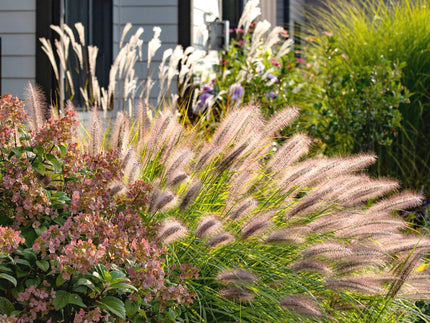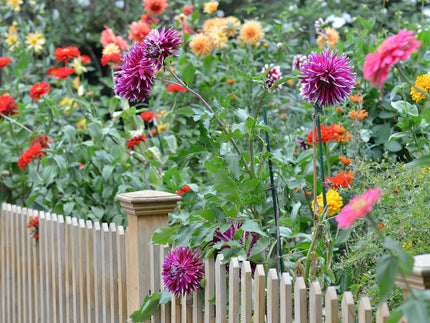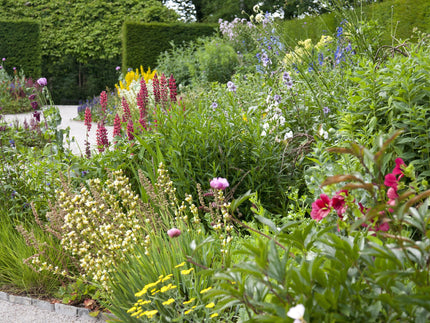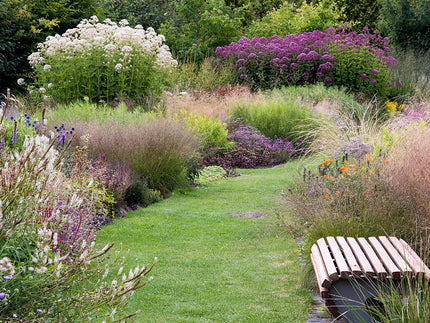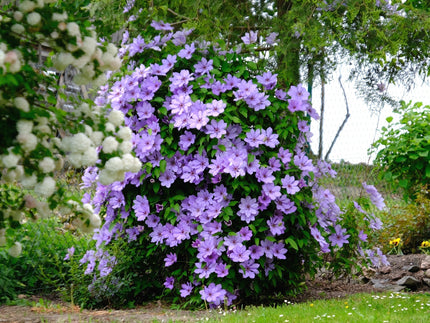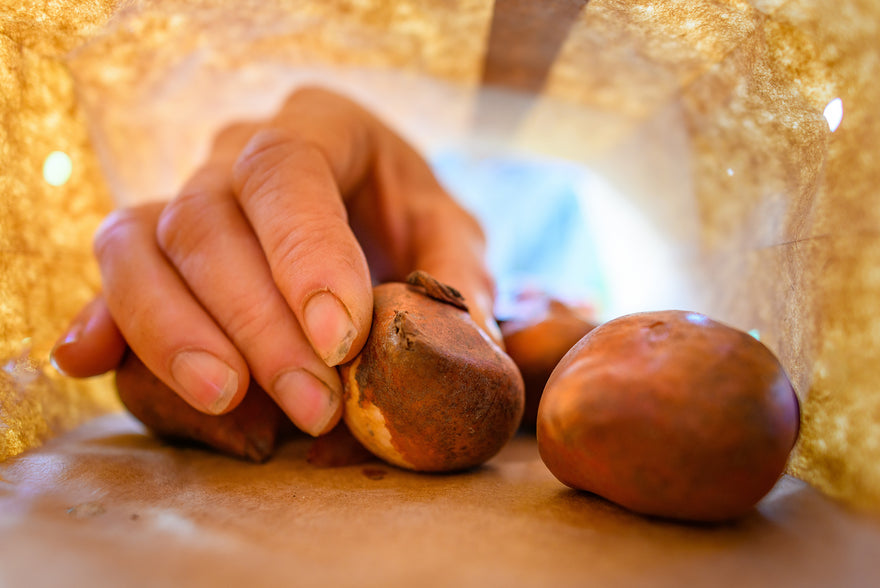
How to store flower bulbs in the UK? A complete guide
Successfully growing flowers from bulbs in the UK can be a rewarding experience, but proper storage of flower bulbs is essential to ensure vibrant blooms. Whether you are preparing to plant in autumn, need to store over winter, manage flower bulbs post-blooming, or keep them safe over summer, this guide is for you. We will cover the essentials for each phase, ensuring your bulbs remain healthy and ready to flourish.
General storage tips
Before diving into the specific seasons, let's start with some general tips on how to store flower bulbs:
-
Cool and dry environment:
Bulbs need to be kept in a cool, dry place with good air circulation. The ideal temperature is between 10 to 15°C.
-
Avoid plastic bags:
Plastic traps moisture and can cause your bulbs to rot. Instead, use breathable materials like paper bags or mesh sacks.
-
Label bulbs:
Make sure to label each type of bulb clearly. This avoids confusion and ensures you plant them correctly when the time comes.
-
Check for pests and diseases:
Regularly inspect your bulbs for signs of pests or disease, and remove any affected ones immediately to prevent the spread.
Continuing from where we left off, consistency in your storage routine is crucial. Now let us look at how to manage your flower bulbs specific to each season in the UK.

Before planting in autumn
Autumn is a critical time for planting many spring-flowering bulbs. Proper preparation before this season ensures your bulbs are in prime condition when they're ready for the soil.
-
Choosing the right bulbs:
Ensure you select bulbs that are firm and free of mould or soft spots. Popular choices for autumn planting include tulips, daffodils, and hyacinths.
-
Storage conditions:
As the weather cools, keep your bulbs in a dry, well-ventilated environment. Avoid places that are too cold or damp, such as basements or garages.
-
Pre-planting preparation:
About a week before planting, bring your bulbs to room temperature to acclimate them. This helps to avoid shocking the bulbs when they are planted in cooler outdoor conditions.
-
Inspect before planting:
Before finally planting, check your bulbs one more time for any signs of disease or rot and discard any compromised ones.
How to store flower bulbs over winter
Winter storage is necessary for non-hardy bulbs that cannot withstand the UK’s winter conditions. These are often summer-flowering bulbs that need protection from frost and freezing temperatures.
-
Dig up non-hardy bulbs:
For bulbs such as dahlias, begonias, and gladioli, it's best to carefully dig them up after the first frost.
-
Clean and dry:
Gently brush off excess soil and allow the bulbs to dry in a cool, dark place for a few days. This helps to prevent mould and rot.
-
Packaging for winter storage:
Pack the dried bulbs in a box filled with peat moss, vermiculite, or sand. Ensure they are not touching each other to avoid the spread of mould or disease.
-
Ideal storage location:
Store the box in a cool, dry place, maintaining a temperature between 4-10°C. Avoid places that can fluctuate too much in temperature or humidity.
-
Regular checkups:
Periodically check on your bulbs for signs of rot or mould. If you find any, remove the affected bulbs immediately to protect the rest.

How to store flower bulbs after blooming
For bulbs that have completed their blooming cycle, proper post-bloom care is essential to prepare them for future growth.
-
Allow foliage to die back:
One of the most important post-bloom steps is to let the foliage die back naturally. While it may be tempting to cut the leaves off immediately, this period allows the bulbs to photosynthesize and store vital nutrients for the next blooming season.
-
Removing spent blooms:
Gently remove any spent flowers to direct energy back into the bulb rather than into seed production. This ensures your bulbs have enough stored energy to produce beautiful blooms next season.
-
Digging up and cleaning:
For bulbs that need to be stored before the next planting season, carefully dig them up once the foliage has completely died back. Clean off any excess soil and trim away dead roots or foliage.
-
Drying process:
Allow the cleaned bulbs to dry in a shaded, well-ventilated area for a few days. This drying process helps to prevent stored bulbs from rotting.
-
Label and store:
Once dried, label the bulbs and store them in breathable containers such as paper bags or mesh sacks. Keep these containers in a cool, dry place away from direct sunlight.
How to store flower bulbs over summer
Storing bulbs over summer is crucial for spring-flowering bulbs that need to be dormant during the heat. Proper storage during this hotter period can make a significant difference in your bulbs' vitality and readiness for the next planting season.
-
Temperature management:
Summer temperatures in the UK can vary, but it’s essential to keep your bulbs at a consistent cool temperature. Aim for an environment with temperatures around 15-20°C, avoiding any extreme heat that could damage the bulbs.
-
Humidity control:
High humidity can lead to mould and rot. Store your bulbs in a dry environment and consider adding a desiccant like silica gel packets in your storage containers to absorb any excess moisture.
-
Regular inspections:
Check on your bulbs every few weeks. Look for any signs of deterioration like soft spots, mould, or shrivelling. Removing any compromised bulbs promptly can save the rest of your collection.
-
Ventilation:
Ensure that your storage containers allow for good air circulation. Mesh bags, wooden crates, or ventilated cardboard boxes are excellent choices to keep the air flowing and prevent moisture buildup.
-
Avoid direct sunlight:
While it’s important to keep bulbs cool, also make sure they’re stored in a dark place. Direct sunlight can increase temperatures inside your storage containers and cause premature sprouting or damage.
Properly storing flower bulbs in the UK is crucial for maintaining their health and ensuring they thrive during their growing seasons. By understanding the specific requirements for each phase—whether before planting in autumn, over winter, post-blooming, or over summer—gardeners can significantly enhance their bulbs' chances of success.

































































































































































































